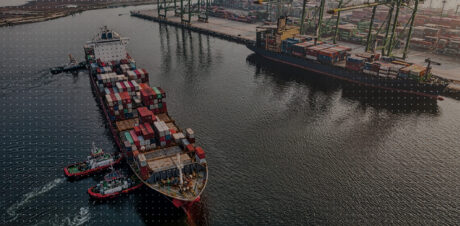Since 2013, the Chinese government has begun banning the import of scrap in an attempt to combat the country’s severe environmental challenges. We have uncovered evidence that at least one scrap dealer has tried to get around the ban by laundering scrap through North Korea, working with a Chinese shipping company that subsequently was sanctioned by the United States.
The Sun Moon Star Trading Co.
Last August, OFAC sanctioned a Chinese shipping company called Dalian Sun Moon Star International Logistics Trading Co., Ltd. for using false documents to facilitate illicit shipments to North Korea. According to the OFAC, these included shipments of “alcohol, tobacco, and cigarette-related products.”
Chinese public records show that, in 2015, years before this designation, the company appeared in court in Guangdong to testify in a case related to goods smuggled into China through North Korea. According to testimony by Dalian Sun Moon Star employees during the trial, the company ran a regular shipping line between Hong Kong and Nampo, North Korea between 2012 and 2014. This shipping line was utilized by the defendant in this case as a channel for moving goods into North Korea to be smuggled across the border into Dandong, China.
What’s Involved
Unlike most smuggling cases involving North Korea, however, this case didn’t involve sanctioned goods like weapons, sensitive electronics, or luxury goods for Pyongyang elites. And although the Chinese court filings indicate that a ship-to-ship transfer was conducted – a method North Korea has used to evade sanctions on its imports of petroleum – no oil changed hands in this case.
Instead, the items being smuggled were trash. Specifically, e-waste: used or defunct electronics that can be broken down and recycled for the components and valuable metals they contain.
Like most countries, China criminalizes failure to report or falsely reporting goods moving across its borders to customs authorities. In serious cases, smuggling can land you a prison term of more than five years. Furthermore, for the last several years, the Chinese government has prohibited the import of certain kinds of waste or scrap.
The Origin of the Company
Chinese court documents indicate that, starting in 2012, a Hunanese man named Zeng began purchasing e-waste in Hong Kong with the intent to resell these items to trash brokers and recyclers in mainland China for a profit. Discovering that Guangdong customs officials were too overzealous in their policing of imports to make smuggling trash directly across the China-Hong Kong border a lucrative endeavor, Zeng devised an ingenious plot: launder the trash through North Korea.
Zeng shipped waste from Hong Kong to Nampo, North Korea. This is where Dalian Sun Moon Star comes in – the company’s Hong Kong-Nampo line shipped some of Zeng’s trash for this leg of its journey.
Once in Nampo, Zeng’s trash would be transferred to another vessel – according to one witness, usually a North Korean flagged cargo ship – which would ship it north. As it approached Dandong, China – right on the Chinese-North Korean border – but before entering port, the North Korean vessel would meet up with a Chinese vessel engaged by Zeng and conduct a ship-to-ship transfer of the cargo. The Chinese vessel would return to Dandong and unload the cargo. From there, the cargo either would be loaded onto another vessel or onto trucks to be shipped to purchasers.
Although Zeng offered a defense, including that his former service in the People’s Liberation Army should lessen his punishment, he was ultimately sentenced to five and a half years in prison and a fine of nearly $15,000 for his waste-laundering scheme.
The public records data that powered this research is available through Sayari Search. If you’re curious how this data could drive insights for your team, or for details on the specific individuals and companies discussed above, please reach out here.



